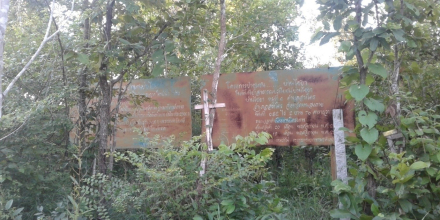Dynamics of grassroots collectivism: natural resource conflicts and social movements in Thailand’s special economic zones

Event details
PhD Seminar
Date & time
Venue
Speaker
Contacts
Internationally, Special Economic Zones (SEZs) have rapidly expanded as a spatial model and engine to promote industrial economic growth and development. In the Greater Mekong Subregion (GMS), the promotion of SEZs is based upon the logic of regional integration and connectivity. In Thailand, the military government directed the establishment of SEZs in 10 target border provinces in 2014. Under this authoritarian setting, the ambiguous and contested process of acquiring public or communal lands for SEZs was often conducted without the informed engagement and consent of local stakeholders, who previously accessed these lands and resources to sustain their livelihoods. My thesis focuses on the controversial process of SEZs development as a site of conflict over natural resources under the Thai military government. Employing a political ecology approach to study state territorialisation, social movements, and commons resource governance, I explore why and how grassroots collective actions did or did not emerge against land dispossession for specific SEZs. My research compares two case studies, using ethnographic and collaborative methodologies. I investigate local resistance movements to the Chiang Khong SEZ in the north, and supplement this with the Nongkhai SEZ in the northeast, both located along the border of Thailand and Lao PDR. Specifically, the thesis examines four key dimensions of these cases: (1) the socio-economic, political and historical contexts for SEZ establishment, (2) the resource characteristics and social determinants of local relationships to commons, (3) the enabling and constraining factors for grassroots movements, and (4) the outcomes in resource governance at the time of my research. This study addresses a significant gap in understanding about why and how spatially intensive regional developments like SEZs can spark environmental social movements and novel public policy deliberations within repressive political spaces. The insights from this research also contribute to our understanding of enabling and constraining conditions for grassroots activism under authoritarian regimes in the GMS.
Bio:
Ratchada Arpornsilp is a PhD candidate under the primary supervision of Prof. Dr. Sango Mahanty in Resources, Environment and Development group at the Crawford School of Public Policy. She has over 8 years of professional experience with international NGOs and public agencies working in development programs across Asia and the Pacific region. In Thailand, she worked with the Center for People and Forests, an International NGO, based in Kasetsart University in Bangkok.
Speaker website: https://crawford.anu.edu.au/people/phd/ratchada-arpornsilp
Updated: 19 September 2024/Responsible Officer: Crawford Engagement/Page Contact: CAP Web Team











